West Africa braces for tough sustainable cocoa rules in Europe
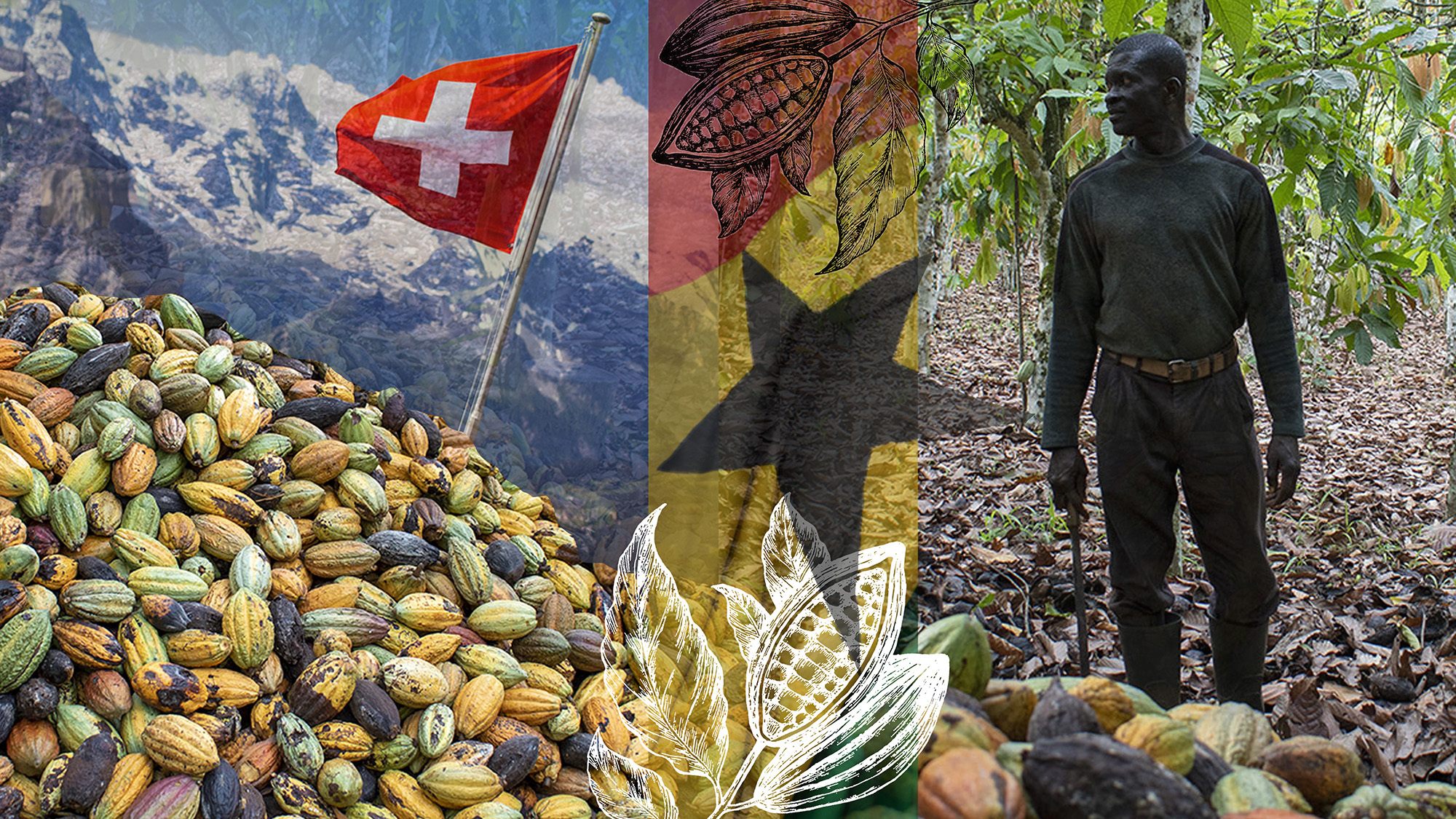
Stricter sustainability rules in the EU and Switzerland could exclude West African cocoa from European markets. A cocoa farmers’ database in Ghana could be a game changer.
Native to Central and South America, cocoa cultivation in West Africa has first been recorded as far back as 1868. The archives of the Royal Botanic Gardens in Kew refer to a few cocoa trees that were thriving on the property of the Swiss missionary charity Basel Mission in Akropong in what was then known as the British Crown colony of Gold Coast. Today, the West African countries of Ivory Coast and Ghana produce over 60% of the world’s cocoa beans and Switzerland has become synonymous with chocolate.
This mutually beneficial relationship has come under strain in recent years. Ivory Coast and Ghana are no longer satisfied with their meagre slice of $6 billion of the $120 billion chocolate industry. Switzerland, along with the European Union and the US, is unhappy about deforestation and child labour in cocoa growing regions of West Africa. Both sides are applying pressure on each other to get what they want but the power balance is still heavily skewed in favour of the cocoa consumers compared to the cocoa producers. The combined revenue earned by Swiss chocolate makers Nestlé (confectionery only), Lindt & Sprüngli and Barry Callebaut in 2021 was more than three times the combined value of cocoa beans exported by Ivory Coast and Ghana the year before. As major stakeholders they are also shaping what cocoa production will look like in the future.
This series of six articles will look at how West Africa is trying to renegotiate its role in the chocolate industry. From joining forces and adding value to investing in digitisation and sustainability. It is an uphill battle but a necessary one to avoid being held hostage by global cocoa prices and ensuring a livelihood for the five million cocoa farmers in the region.
Held every three years, the sixth European Union-African Union SummitExternal link in February was an occasion for African leaders to drum up investment in their countries and for European players to show they haven’t abandoned the continent to China. The shindig, held in Brussels this year and postponed several times due to the Covid pandemic, raised €150 billion (CHF156.5 billion) in investment pledges for energy, transport and digital infrastructure in Africa.
It was also an opportunity for the heads of two of the world’s biggest cocoa producers – Ghanaian President Nana Akufo-Addo and his Ivorian counterpart Alassane Ouattara – to get something off their chests. Both expressed their concerns to the president of the European parliament, Roberta Metsola, about proposed new EU rules on deforestation that could hurt their cocoa exports; Ghana and Ivory Coast together account for over 60% of global cocoa bean production.
In November 2021, the EU Commission tabled a proposal External linkfor a regulation on deforestation-free supply chains. Cocoa was one of one of five global commodities (along with beef, palm oil, soy and coffee) selected for more regulation. The report states that cocoa alone is responsible for 7.5% of all EU-driven deforestation globally.
One of the options on the table is a complete ban of cocoa products linked to deforestation from entering the EU market. The proposal admitted that such a regulation “will affect sectors that are essential for the economies of particular countries” such as Ghana and Ivory Coast and that it would require “intensified bilateral engagement”. The legislative proposal has to be agreed on and adopted by the Council of the EU and the European parliament, which can take up to three years.
In a joint statementExternal link on the last day of the EU-Africa summit, Akufo-Addo and Ouattara warned of the “risk of increasing poverty among cocoa farmers in both countries if the current proposed deforestation legislation is adopted as it is without considering the adverse impact it will have on the income of the many small holder farmers”.
Like the EU, Switzerland also has sustainability targets for cocoa even though they are not binding. The goal, pledged in 2017, is for 80% of all cocoa imports to come from sustainable sources by 2025 (the share was 74% in 2020). This is achieved via two means: through verified sustainability programs run by Swiss companies themselves or through direct purchase of certified cocoa products (like the Fairtrade label).
Just like EU regulations, these targets impact cocoa farmers in producer countries like Ghana and Ivory Coast.
Purchasing power
Europe, including Switzerland, is the biggest buyer of cocoa beans for further processing in the world. Close to 40% of the annual global cocoa bean harvest was processed in Europe into cocoa mass, cocoa butter, cocoa powder, chocolate or other cocoa products.
Compared to the EU, Switzerland imports relatively small amounts of cocoa beans directly from West Africa but Swiss-based multinational companies like Nestlé source around 60% of their supply from the region. For comparison, in the 2019/20 period the quantity of cocoa sourced by Nestlé from West Africa alone (148,035 tonnes) was more than three times the amount of all the cocoa processed or consumed in Switzerland (46,000 tonnes).
Swiss companies, to comply with the EU’s and Switzerland’s deforestation targets, have also made individual commitments to completely end deforestation in their supply chains: Nestlé by 2020 (pushed back to 2025) and both Lindt & Sprüngli and Barry Callebaut by 2025.
The corporate drive for zero deforestation cocoa – along with that of European Union – is having serious consequences in West Africa. In November 2020, Nestlé announced that it was excluding 4,300 cocoa farmers in Ghana and Ivory Coast from its supply chain to meet its sustainable cocoa commitments. Their fault: growing cocoa in protected areas and designated forest land.
In Ivory Coast, 3,700 farmers were excluded as their fields were located in classified forests which are lower grade forests compared to national parks but still no-go zones for certification agencies. In Ghana, 668 cocoa farmers were found to be cultivating 912 fields in national parks and forest reserves.
“Some of these farms have been established for over 20 years but fall within what is officially designated as ‘forest’,” said Nestlé in its 2020 Tackling Deforestation progress reportExternal link.
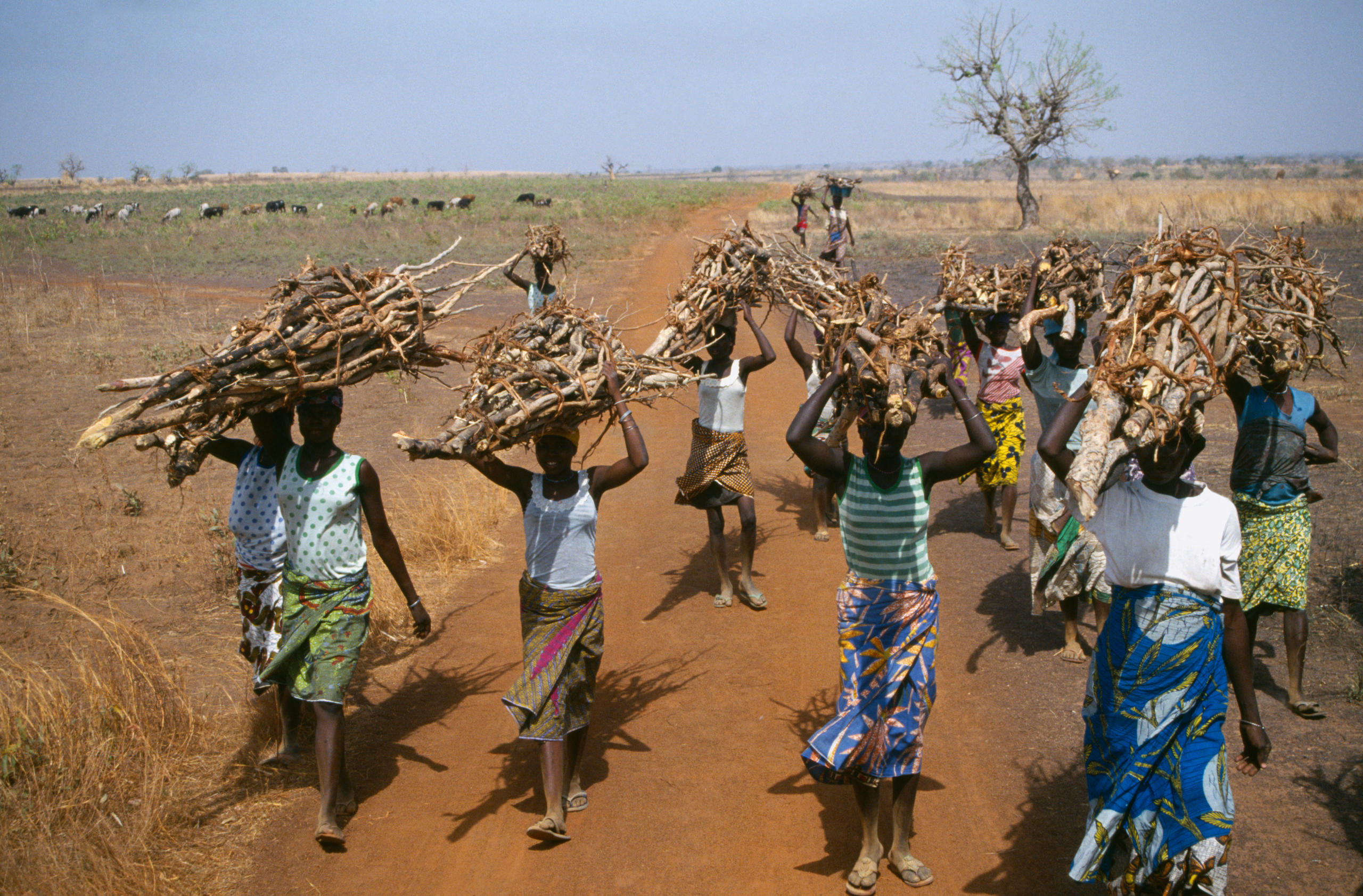
Ghanaian experiment
The writing was on the wall for cocoa exporters: comply or be cut off. To their credit, they have not been sitting idle waiting for the EU regulatory axe to fall. Just a few months after Nestlé’s move to exclude non-compliant farmers, Ghana’s cocoa board (COCOBOD) announced their plans to develop a nationwide Cocoa Management System (CMS) digital database project. It aims to capture comprehensive data on cocoa farmers such as the location of their farms, household composition and farm size with a view to bring greater transparency to country’s cocoa sector including data needed to identify deforestation risks.
Currently, a bag of cocoa procured in Ghana can only be traced back to a cocoa growing community and not to the farm where the beans came from. This lack of in-depth transparency has made private players like Nestlé invest in their own traceability schemes. This is the first time a government body is developing such a traceability database for its commodities.
“For the first time, every programme, every policy intervention, plan and projection, every infrastructural project needed in cocoa-growing areas will be based on verified data,” said the Ghanaian Vice President Mahamudu Bawumia who was present at the launch on October 23, 2021.
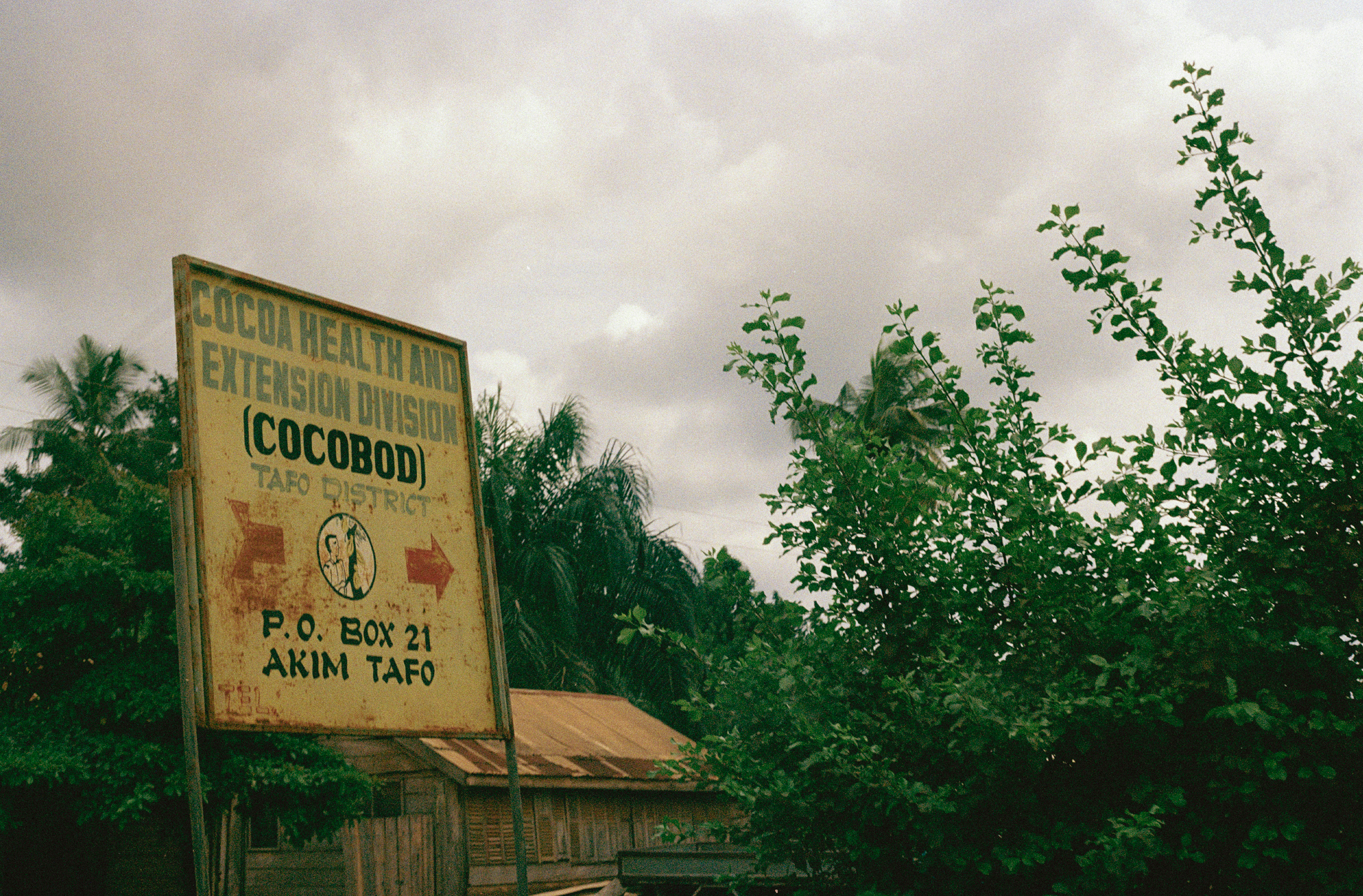
COCOBOD wants to register 1.5 million cocoa farmers into the CMS and estimates the project to cost a little over $10 million. It will be financed from the $200 million second tranche of a $600 million loan to finance productivity enhancement measures signed by Ghana in 2019 with a loan syndicate that includes the African Development Bank, Japan International Cooperation Agency, the Development Bank of South Africa and investment banks including Credit Suisse, Cassa Depositi e Prestiti Spa and the Industrial and Commercial Bank of China Limited.
COCOBOD has been unable to obtain Swiss support for the CMS despite having the ear of Swiss Environment Minister Simonetta Sommaruga during her four-day trip to Ghana in 2021 that included a visit to a cocoa farm and a chocolate manufacturing facility. The minister only made references to increasing organic cocoa cultivation. It appears like the CMS initiative is being observed with interest in Switzerland but nobody seems prepared to invest in it yet.
Ghana is a priority country for Swiss economic development aid with CHF65 million budgeted for the 2021-2024 period and there is a strong appetite for funding sustainable projects. For example, in 2020, Switzerland signed an agreement with Ghana for carbon offset projects involving solar power as part of the Ghana National Clean Energy Program.
The investment is expected to pay off in the long run as the database will also be used by COCOBOD for all payment related transactions. Registered farmers will be issued a Cocoa Identification Card that is also expected to serve as a credit card to buy inputs like fertilizers. Farmers will also be paid for their cocoa beans via the CMS reducing the risk of corruption and theft associated with cash payments.
“In fact, our goal is to make Ghana the most digitized economy in Africa within the next two years,” said Vice President Bawumia at the CMS announcement ceremony in 2021.
The CMS will be an important tool as it will allow farmers – especially those whose farms are on the boundaries of forest areas – to contest the exclusion of their cocoa from international supply chains. Nestlé itself had remarked that the excluded local farmers may contest the classification of their lands as forests. However, until the CMS is in place, they have no means to prove their claims.
Farmers already struggling to make ends meet without having to contend with proving their innocence as far as chopping down forests is concerned. Take 54-year-old Kyei Baffour, a father of nine who has been farming cocoa since the early 1980s. He has now risen to the position of Chief Farmer in Ataase Akwanta, a village in New Edubiase.
This hasn’t counted for much as, in the good years, his 25-acres worth of farmland nets him about 15 bags of cocoa per acre and CHF923 ($987) a year. This is an amount he considers insufficient.
“It is not enough that you work for a whole year and make just GHS7,000. It is basically a loss.” Baffour didn’t bother to compute what he makes in sub-par years. “In a bad year, what I make doesn’t take me anywhere,” he laments.
Pension promise
Baffour is concerned about the lack of communication on the CMS scheme. He doesn’t have a Cocoa Identification Card and is waiting for his community’s farmers to be registered. He says, it is almost like the launch of the scheme never happened.
“Since we attended the launch ceremony, they (the government) haven’t said much about the scheme, and we have not given it much thought,” he says.
To win the support of farmers like Baffour and to convince them to register with the CMS, COCOBOD proposed to link pension payments to the CMS database. Despite being enshrined in law since 1984, most cocoa farmers, like the bulk of Ghana’s informal sector, have no pension to look forward to.
A proposed pilot project linking the CMS to pensions for cocoa farmers was thus a big deal for the country. The president himself turned up at the announcement ceremony held in Kumasi in the cocoa-growing Ashanti region on December 1, 2020.
It was six days to a general election and President Nana Akufo-Addo, was chasing a second term. Some viewed the launch as an attempt to court favour with cocoa farmers, whose welfare has not matched Ghana’s standing as the world’s second-largest producer of cocoa (accounting for 17% of global production of 4.8 million tonnes in 2019).
Under the pilot project, each time a farmer sells cocoa to COCOBOD, a minimum 5% deduction will be paid out into a special fund. Farmers will receive an alert on their mobile phones once the amount has been credited. The government will also credit 1% of value of the cocoa sold to the farmer’s account. Seventy-five percent of contributions will be invested in a retirement account that will be accessible only after the farmer’s retirement. The remainder will be in a savings account the farmer will be able to access when necessary.
The Chief Executive of COCOBOD, Joseph Boahen Aidoo said the CMS will also facilitate the prompt payment of claims to beneficiary farmers.
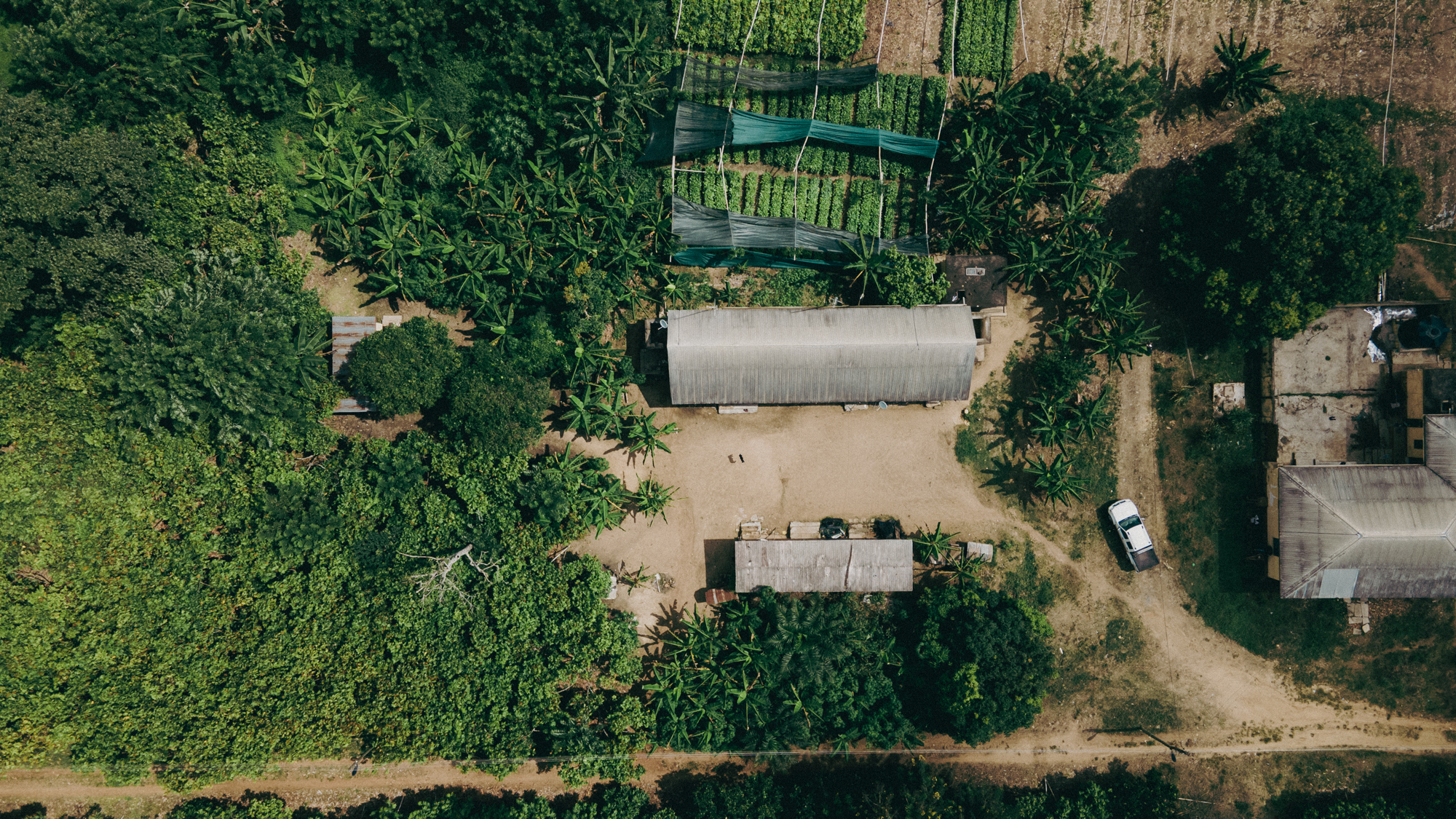
Slow rollout
In 2021, the CMS and pension scheme was finally piloted in the New Edubiase district, the highest cocoa producing district in the Ashanti Region in southern Ghana. It was expected to be fully operational nationwide by the end of 2021.
Despite the initial promise, Ghana’s cocoa farmers, most of whom are smallholders, and make about $1 a day, have doubts the pension scheme will kick off this year. This is despite the CHF 9.82 million ($10.53 million) allocated to it for the 2021/2022 cocoa harvest season.
Some of it is due to reluctance by a segment of cocoa farmers like Anane Boateng, the president of the Ghana National Cocoa Farmers Association that boasts over 100,000 members. His association split from the official Ghana Cocoa, Coffee and Sheanut Farmers Association in 2019 and bills itself as “the voice of the ordinary small holder cocoa farmer in Ghana”.
Boateng was not happy when the CMS and pension pilot began in New Edubiase because he wanted the government to immediately roll out the scheme nationwide rather than in a pilot zone. He is also frustrated by the failure of successive governments to deliver pensions for all cocoa farmers that was promised to them in 1984.
“We said we will not agree to the pilot. This is because, they have forfeited the law,” he stressed.
Fiifi Boafo, COCOBOD’s head of public affairs acknowledged the delays in implementing the CMS and pension scheme.
“What is clear is that the structures were just not there, and, of course, the commitment of the government to also make it work,” Boafo says of the almost 40-year delay to implement the pension scheme. He, however, insists that the board is on track to roll out the pension scheme by the end of 2022.
Registration for the CMS is also making progress. Over 90% of the estimated 1.5 million cocoa farmers in Ghana have started the registration process for the cocoa management system, according to Boafo.
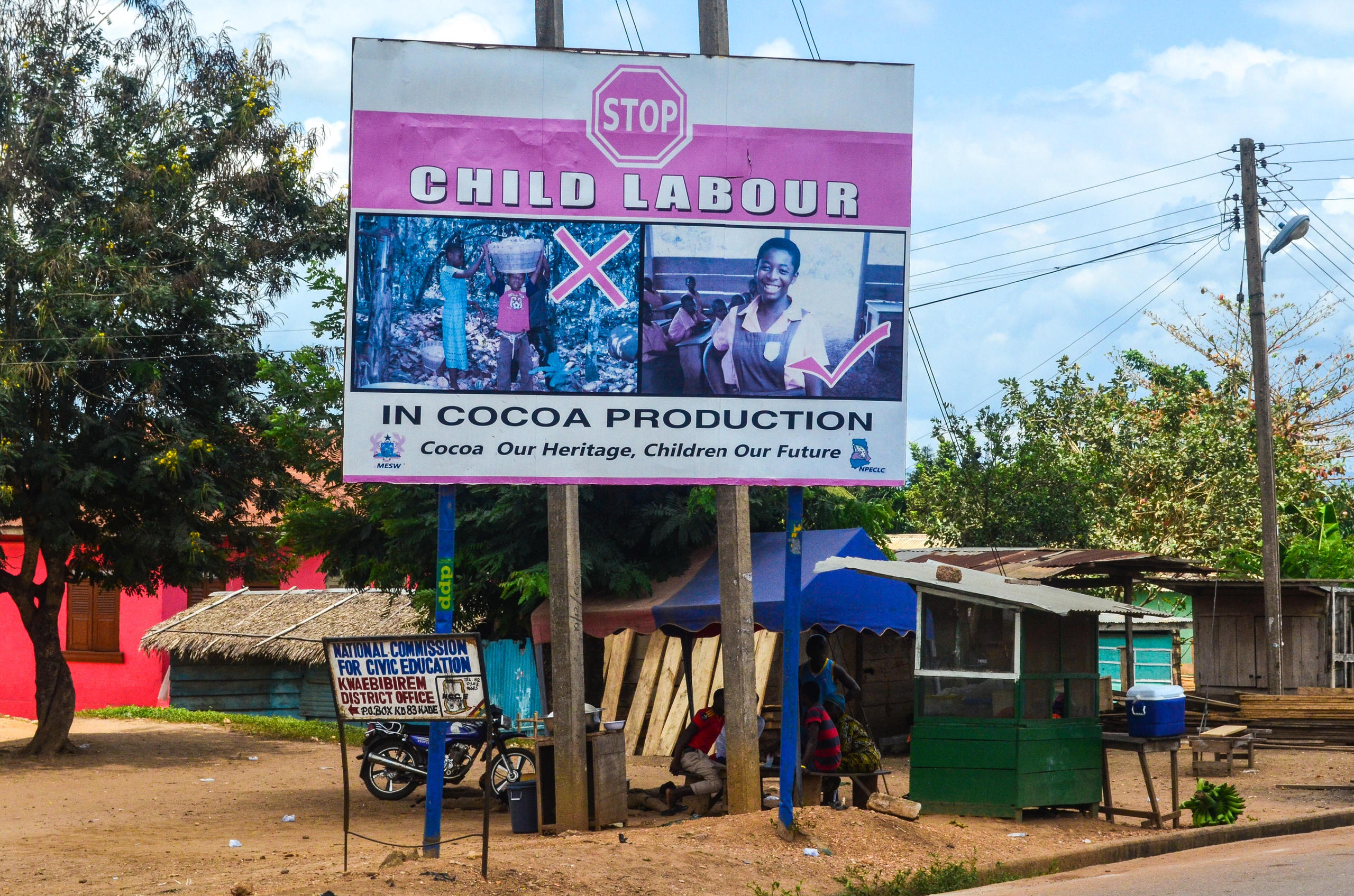
Impact on chocolate industry
External stakeholders have also expressed skepticism. Christian Robin, the CEO of the Swiss Platform for Sustainable CocoaExternal link that is co-financed by the government through the Swiss State Secretariat for Economic Affairs (SECO), summed up the situation.
“I would find a national traceability system valuable (so as to better control deforestation and child labour), but very demanding. There are still many question marks regarding implementation. COCOBOD as an implementing organization is certainly very challenged,” he said.
Swiss chocolate companies, who have invested considerable sums in developing their own cocoa databases, are also waiting and watching to see how the CMS is implemented before jumping on board. When contacted by SWI Swissinfo.ch, they all expressed general support for the CMS concept. However, their views on actually using the CMS for traceability of their supply chains differed. Nestlé did not address the subject, Barry Callebaut said it would use the CMS for “basic traceability of cocoa beans” and Lindt & Sprüngli said it would “build on the solution” if the Ghanaian government prescribes it.
A special taskforce was created in 2020 to explore how companies such as Nestlé and Lindt & Sprüngli can collaborate with the CMS. It comprises representatives from COCOBOD and companies as well as the World Cocoa Foundation.
Michael Ekow Amoah, who works for COCOBOD, has given presentations on the CMS rollout to the taskforce a couple of times to help alleviate the concerns of chocolate companies. According to him, companies will be allowed to keep their traceability systems (and protect the confidentiality of their supply chains from outsiders) but the source of their data will have to be the CMS. He insists the CMS will help tilt the power balance slightly in favour of farmers.
“The traceability systems of private companies have commercial interests at the forefront. Farmers should have the choice who they sell to and should not be tied to one company for the sake of transparency,” he says.
According to him, companies alone cannot guarantee there is no deforestation in cocoa growing areas. They might be able to prevent deforestation in their area of operations but the problem may simply shift to adjacent areas (known as leakage).
“What the EU proposal demands you cannot achieve without a national database,” he says.
Irrespective of whether they use it or not, cocoa importers in Europe will have to pay for it. COCOBOD plans to charge a traceability fee for every tonne of cocoa sold (similar to a $400/tonne Living Income Differential introduced in 2020 to ensure farmers could earn a decent living). The exact fee has not yet been decided yet, but the system is expected to be fully operational at the end of 2023, according to Amoah.
More

In compliance with the JTI standards
More: SWI swissinfo.ch certified by the Journalism Trust Initiative









You can find an overview of ongoing debates with our journalists here . Please join us!
If you want to start a conversation about a topic raised in this article or want to report factual errors, email us at english@swissinfo.ch.